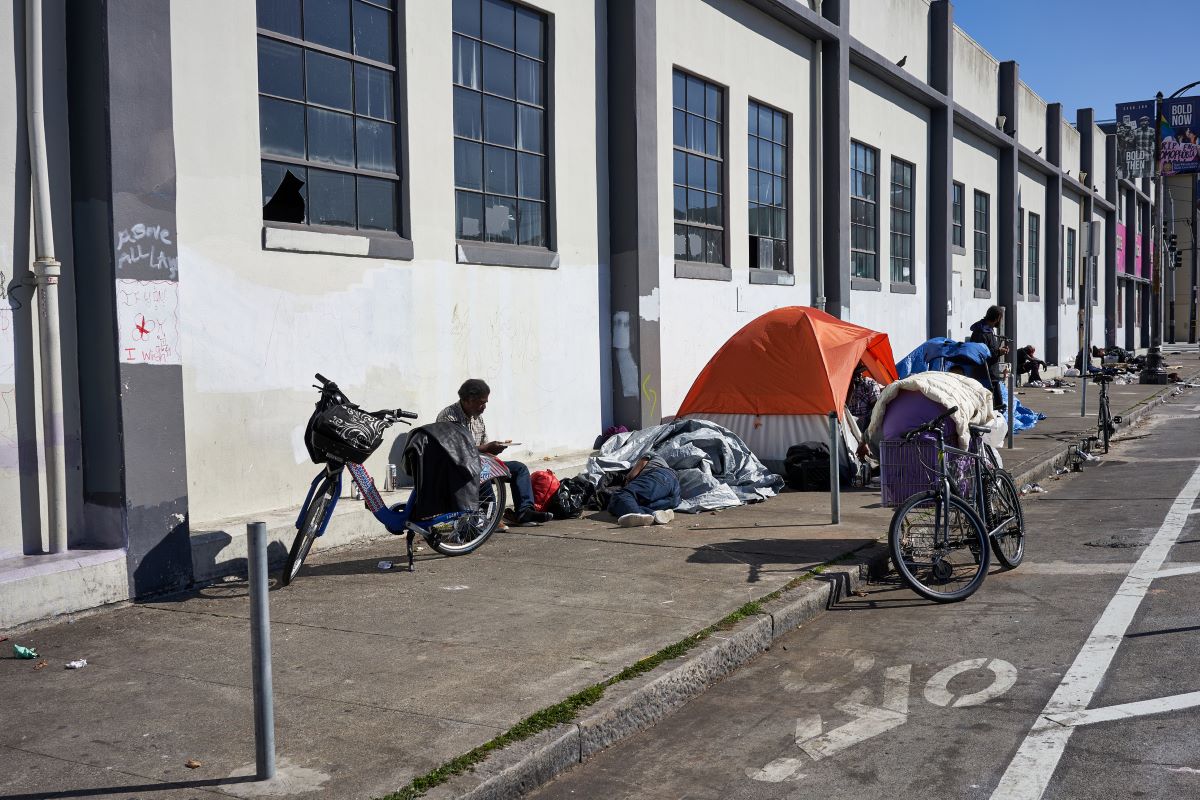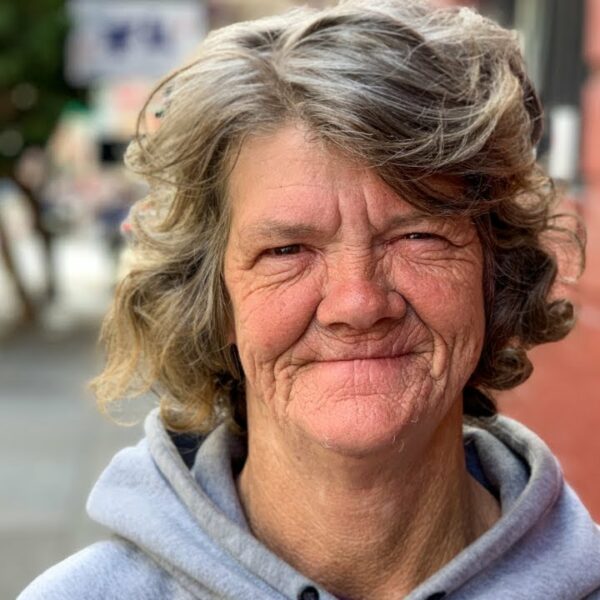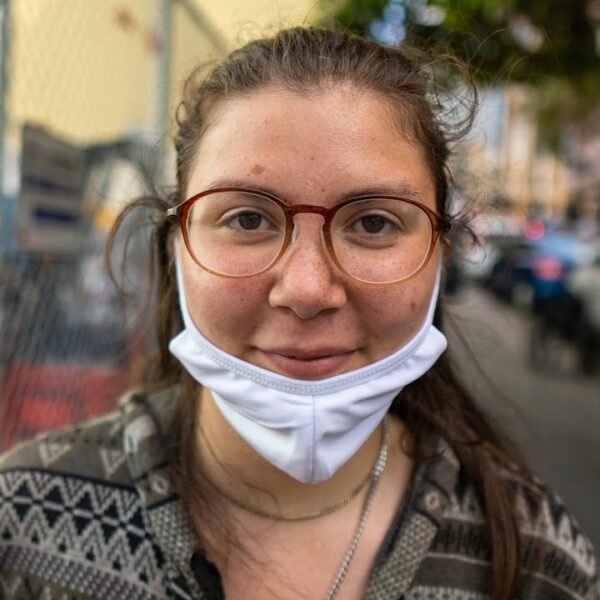San Francisco is piloting a new program staffed by mental health professionals to engage with people sleeping on the streets and help them get into shelters or services.
The new program, known as the Homeless Engagement Assistance Response Team (HEART), was launched in early June. It is similar to alternative-to-police programs in cities like Denver and Oklahoma City.
HEART is designed to support the city’s other emergency response teams, such as the Street Crisis Response Team, which is overseen by the Department of Emergency Management, according to a press release from the city.
“The new HEART team is part of our work to further build out our street response effort to help those struggling on our streets,” Mayor London Breed said earlier this month. “Addressing homelessness isn’t just about adding new shelter or housing – it’s also about meeting people where they are to get them connected to those resources.”
The new pilot program was launched as federal one-night data shows that San Francisco’s rates of unsheltered homelessness have declined by 15% since 2019 to nearly 4,400 people. To that end, Breed said HEART will focus its efforts on the following:
- Assessing the needs of unhoused folks
- Documenting their long-term service linkage needs
- Coordinating responses with other emergency management programs to further reduce unsheltered homelessness
“San Francisco is a national leader in developing and implementing alternatives to law enforcement, and it is essential that we invest in compassionate responses to people experiencing street homelessness,” said Mary Ellen Carroll, who leads San Francisco’s DEM.
Outreach Teams Lack Support Needed to Be Effective
However, some critics have argued that similar programs have failed to achieve meaningful results for unhoused folks. Others have suffered from not having a consistent mission and a lack of stable funding.
In March, the San Francisco Chronicle reported that San Francisco’s Street Crisis Team, which launched in November 2020 in response to the George Floyd protests, no longer has a certified mental health professional on staff, both because of hiring issues and a departmental reorganization.
Unlike other departmental positions, this vacancy prevents SCT from performing one of its most basic functions—issuing an involuntary psychiatric hold for someone in extreme crisis. This hold gives medical and mental health professionals the right to detain someone in situations outlined by state law.
The SCT’s operations struggles followed a reorganization ordered by Mayor Breed in February that took the team’s mental health professionals out of their outreach vans and put them into roles responsible for case follow-ups.
“We never sat down and had a conversation (with the city) about it,” Vitka Eisen, CEO of HealthRIGHT 360, the company that hires the SCT team members, told The Chronicle. “The people we have are very dedicated to doing street crisis response. For our workers … it’s not the job they signed up for, and it may not be the job that they want.”
‘Just Another Tool for the City to Sweep Its Most Vulnerable People’
A similar program in Denver known as Support Team Assisted Response, or STAR, has earned national recognition and is set to expand its operations from five vans to eight this year, Axios reported. However, the program’s relationship with Denver’s Department of Public Health and Environment, which oversees STAR, has been tense after the agency suspended STAR’s public meetings in September 2022.
One concern Vinnie Cervantes, who sits on STAR’s advisory board, has expressed is that Denver police officers show up to STAR calls when they’re not supposed to. Denver has denied this allegation.
But those concerns track with other programs Denver has piloted to address homelessness. For example, the city launched its Street Enforcement Team in 2022 to help enforce its quality-of-life ordinances.
An investigation by the Denver Voice, a street newspaper, found that the team had contacted about 1,200 people in its first ten months but connected just 72 of them to services. That 5% success rate was like the number of contacts made by Denver police officers that resulted in an unhoused person receiving services.
“The predominance of move-along orders on the daily log demonstrates that the SET is just another tool for the City to sweep its most vulnerable people from block to block,” former councilwoman Candi CdeBaca told the Voice.
How You Can Help
The pandemic proved that we need to rethink housing in the U.S. It also showed that aid programs work when agencies and service organizations have sufficient funds and clear guidance on spending aid dollars.
Contact your officials and representatives. Tell them you support keeping many of the pandemic-related aid programs in place for future use. They have proven effective at keeping people housed, which is the first step to ending homelessness.













